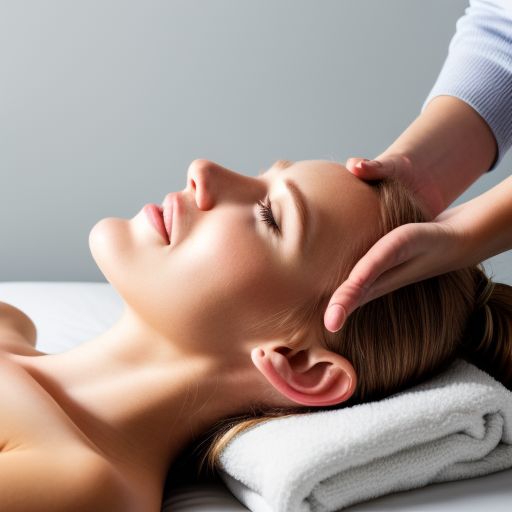Reiki (pronounced: Ray-key) in Warrington
Juniper Clinic provides reiki in Warrington to address a wide range of health concerns.
What is Reiki ?
Welcome to our premier reiki clinic in Warrington, where your well-being takes center stage.
Reiki” (ray-key) is Japanese for ‘universal life energy’, a term used to describe a natural system to help bring about an improved sense of wellbeing and a positive feeling of spiritual renewal. This tradition was founded by Dr Mikao Usui in the early 20th century and evolved as a result of his research, experience and dedication. It is a tradition that is open to any belief system and benefits may include deep relaxation and the promotion of a calm peaceful sense of wellbeing.
Reiki is a form of Japanese Healing Modality, as well as a Spiritual and Self-Development Practice, and relies on the concept of channelling universal energy: Qi/ ch’i (or “ki” in Japanese).
Reiki was one of the first Professional Complementary Therapies in the United Kingdom to organise itself and come under CNHC regulation, meaning that Reiki practitioners were some of the first to be able to be Government Registered.
Reiki is carried out over clothing, and is a gentle, relaxing and non-invasive therapy; which has no contra-indications when used on its own. It is safe for people of all ages, and all levels of health, and it works holistically, seemingly flowing to where it’s needed, automatically. Because Reiki flows to where it is needed, and because it works holistically, it’s advisable for the practitioner and client not to expect a fixed outcome, as there may be hidden issues or imbalances which the Reiki might flow to first.



What happens at a Reiki treatment?
The treatment will usually take place lying or sitting down comfortably, often with a blanket, ideally with no harsh lighting, relaxing soft music and in a relaxing, soothing, comfortable environment.
The person receiving Reiki can choose whether they would like Reiki to be given as a hands-on or hands-off treatment (Reiki does not require physical contact, but it can be given as a hands-on treatment, using light touch), and they can also stop or pause the treatment at any time, should they wish. Reiki can help blocks to be gently released and cleared, on all levels, and sometimes this can trigger a strong emotional response (laughing or crying), an arm, hand or leg moving slightly, or even coughing (especially if a throat chakra block is shifting), during the treatment. If the person receiving Reiki is concerned or surprised, or simply wants some time to gather themselves again before continuing, then a short break can be taken. Any responses like this are perfectly normal, and can simply happen as a result of the Reiki energy flowing and re-establishing a healthy balance and flow of qi in the body.
A Reiki treatment will usually be a full body treatment from head to foot; sometimes lying on the back, sometimes in side position or lying on the front. This really depends on the physical requirements and comfort of the person receiving the Reiki, as well as the Reiki professional’s intuition (i.e. a Reiki practitioner may not need or ask a client to move onto their front or side, as Reiki can be used to reach those areas without the client having to move).
The Reiki practitioner will also ask whether there’s a particular outcome or goal they’d like the Reiki treatment to help with; because although the outcome expected should not be fixed, it can be empowering and helpful for the person receiving Reiki to create a mantra, to take into the treatment with them, if they wish.
Each Reiki treatment will be experienced differently by each individual person, and the same person is likely to experience different treatments with the same practitioner, differently. It’s a dynamic process, and how we receive it will depend on how we are, and how our energy is, on a particular day. It’s a bit like listening to music. How the music makes you feel, and how much you feel affected by it too, will vary depending on how you’re feeling, the weather, what’s just happened in your day and how much sleep you got last night. It’s important to remember that Reiki always works, even if it feels different to the way we’ve expected it to feel.

How Does Reiki Work?
Whilst science can’t explain how Reiki does what it does, there have been many scientifically rigorous studies carried out, both on people receiving Reiki and on those giving Reiki. Some of the effects of Reiki that the UK Government’s Regulator of Complementary and Natural Healthcare (CNHC) lists, are
- Encouraging relaxation;
- Bringing balance to the mind and emotions;
- Feelings of peace, and/or of being uplifted;
- Promoting a calm, peaceful sense of wellbeing;
- Encouraging positive lifestyle changes;
- A greater inner harmony and balance;
- Greater emotional resilience.
Many hospices and NHS facilities have been integrating Reiki into their services, for many years, and Reiki is one of the most widely accepted Complementary Therapy modalities in mainstream Western Medicine, in the United Kingdom, and other countries.
For more information about Reiki, you can visit the UK Reiki Federation or the CNHC’s information about Reiki
Common Reiki Responses
Some of the most commonplace responses/experiences that people have during a Reiki treatment are:
- Change in feelings of temperature (feeling hot, cold, or both, in different areas of the body);
- Tingling sensations;
- Feeling very heavy, as though they can’t move their body, or very light as though they’re floating;
- Seeing colours or images/people;
- Waking dreams or not knowing whether they’re awake or asleep;
- Feeling of air pressure/intensity/magnetism-like feeling;
- Sensations in a different part of the body from the one being worked on;
- Deep relaxation;
- Busy mind quietened, or continuing but still feeling deeply relaxed;
- Sudden insights into, or realisations about their own lives;
- Feeling uplifted/peaceful, deep wellbeing, as though a weight has been lifted.
After a treatment, clients may feel a little light-headed or “spacey”, and so they’re encouraged to sit and drink some water or tea, and come back fully, before leaving after a Reiki session. It’s advisable to stay well hydrated after a Reiki treatment, to take things easy and avoid stimulants if possible. This is purely because the Reiki energy will still be in the body, still doing its job, for a couple of days after treatment – and you’ll reap more benefits from it if you follow these guidelines. Some people feel a little more emotional, as stuck emotional blocks or experiences come to the surface and are released – and this is just a holistic Reiki detox. Some people feel a little under the weather – from the physical detoxification effects of the treatment – mild cold symptoms, for example. This should only last a day or two, and will only be very mild.



